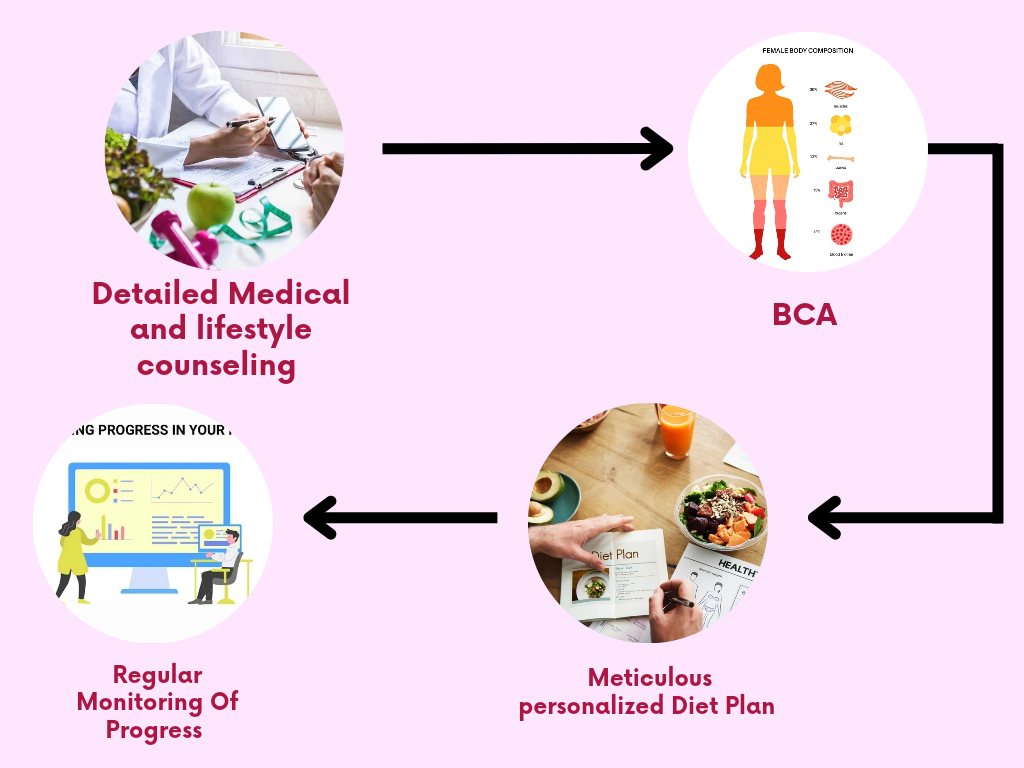


What is PCOS?
PCOS or Poly Cystic Ovarian Syndrome is a hormonal disorder causing enlarged ovaries with small cysts on the outer edges.If you’re looking to manage and reverse PCOS effectively, consulting the best PCOS dietician can make a significant difference. A specialized PCOS dietician or nutritionist can craft a personalized PCOS diet plan to balance hormones, manage weight, and improve overall health. Whether you’re seeking the best PCOS dietician in India or specifically in Madhya Pradesh, expert guidance is essential for a tailored approach. Many of the best dieticians offer online consultations, making it easy to access PCOS treatment from anywhere. A well-structured PCOS diet chart can be a powerful tool in your journey to reverse PCOS and improve your well-being.
Causes of PCOS
Insulin resistance
Insulin is a hormone that the pancreas makes. It allows cells to use sugar, your body’s primary energy supply. If cells become resistant to the action of insulin, then blood sugar levels can go up. This can cause your body to make more insulin to try to bring down the blood sugar level.
Too much insulin might cause your body to make too much of the male hormone androgen. You could have trouble with ovulation, the process where eggs are released from the ovary. One sign of insulin resistance is dark, velvety patches of skin on the lower part of the neck, armpits, groin or under the breasts. A bigger appetite and weight gain may be other signs.
Heredity
Research suggests that certain genes might be linked to PCOS. Having a family history of PCOS may play a role in developing the condition.
Low-grade inflammation
White blood cells make substances in response to infection or injury. This response is called low-grade inflammation. Research shows that people with PCOS have a type of long-term, low-grade inflammation that leads polycystic ovaries to produce androgens. This can lead to heart and blood vessel problems.
Excess androgen
With PCOS, the ovaries may produce high levels of androgen. Having too much androgen interferes with ovulation. This means that eggs don’t develop on a regular basis and aren’t released from the follicles where they develop. Excess androgen also can result in hirsutism and acne.
Symptoms of PCOS
Irregular periods
Having few menstrual periods or having periods that aren't regular are common signs of PCOS. So is having periods that last for many days or longer than is typical for a period. For example, you might have fewer than nine periods a year. And those periods may occur more than 35 days apart. You may have trouble getting pregnant.
Our Approach to fight PCOS

Testimonials




